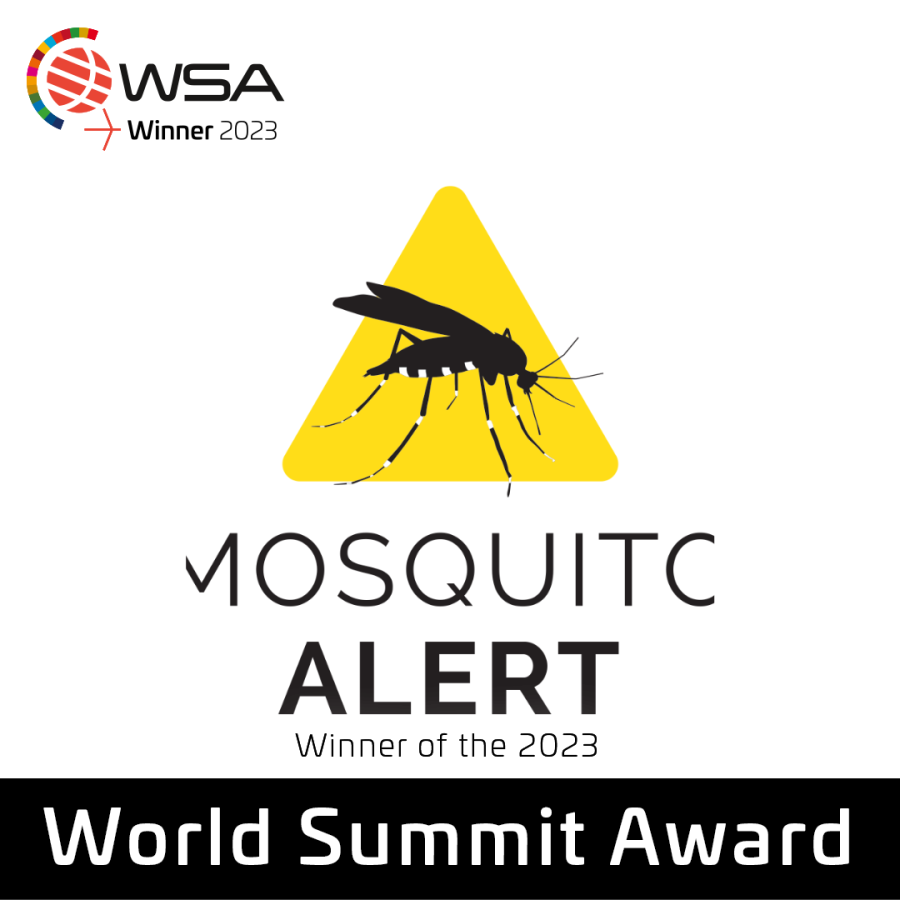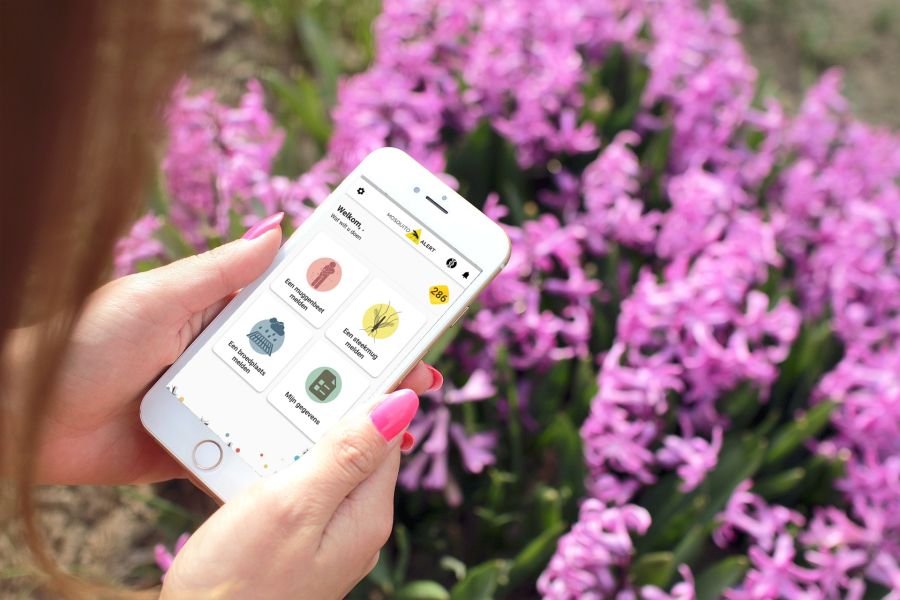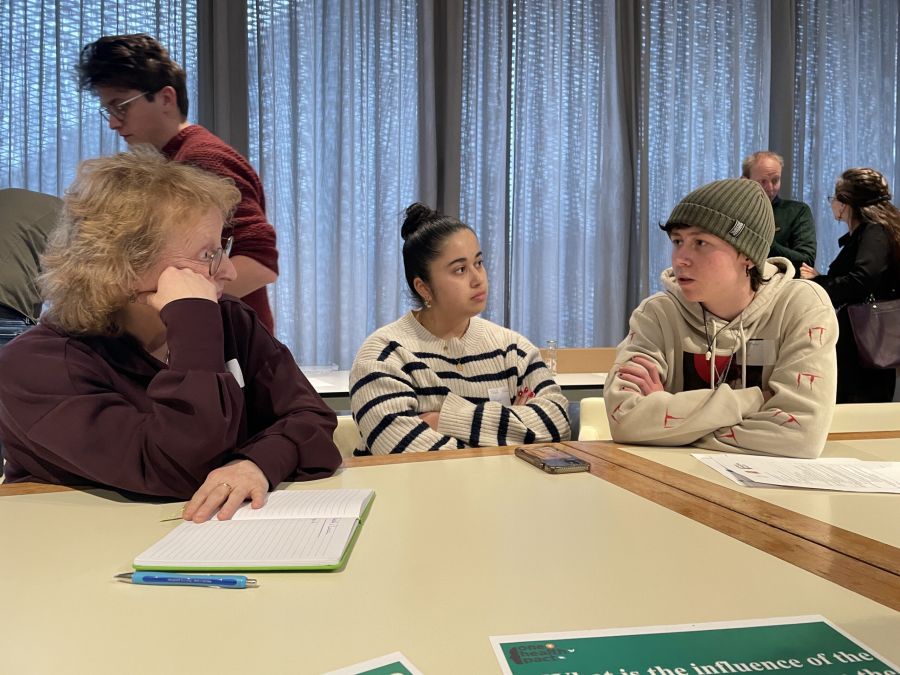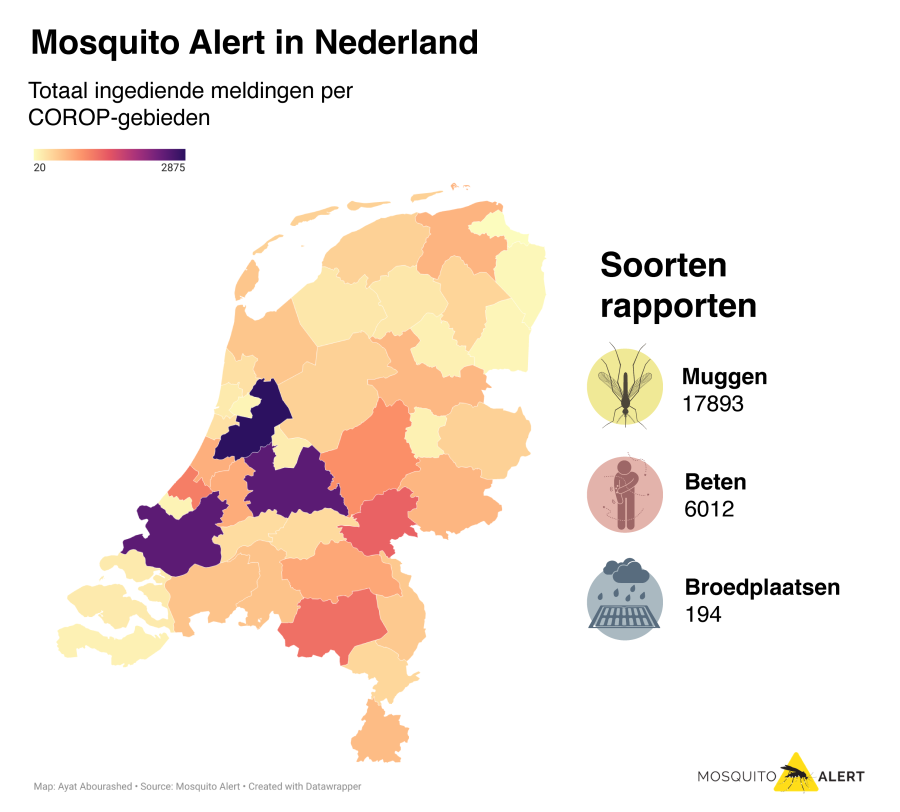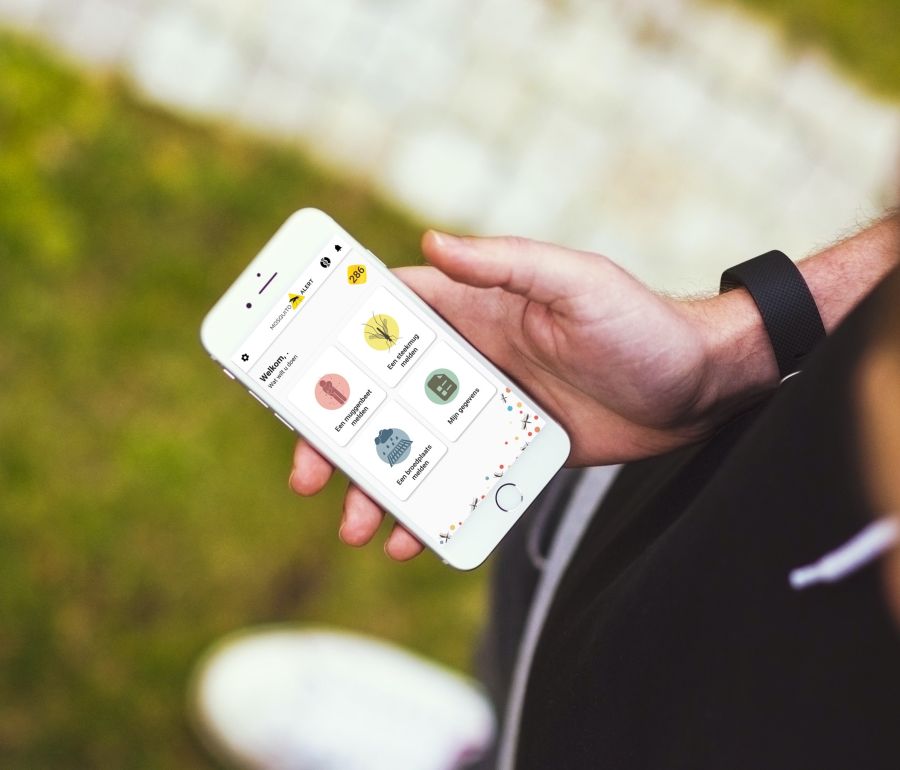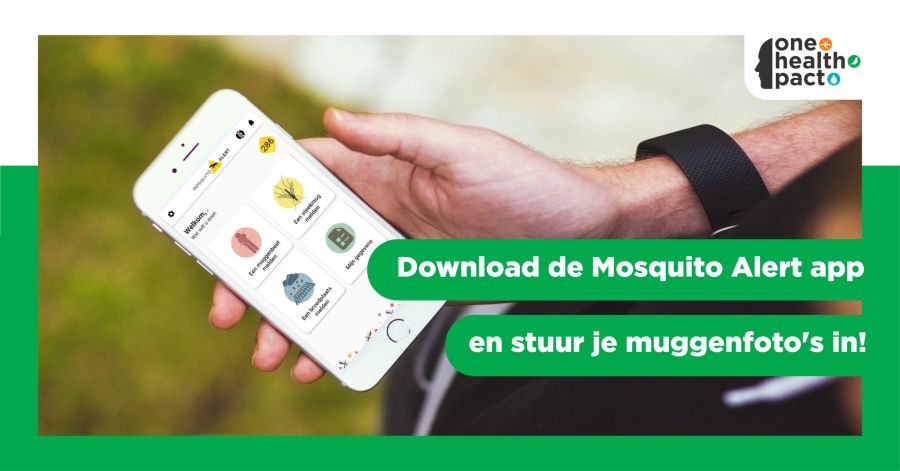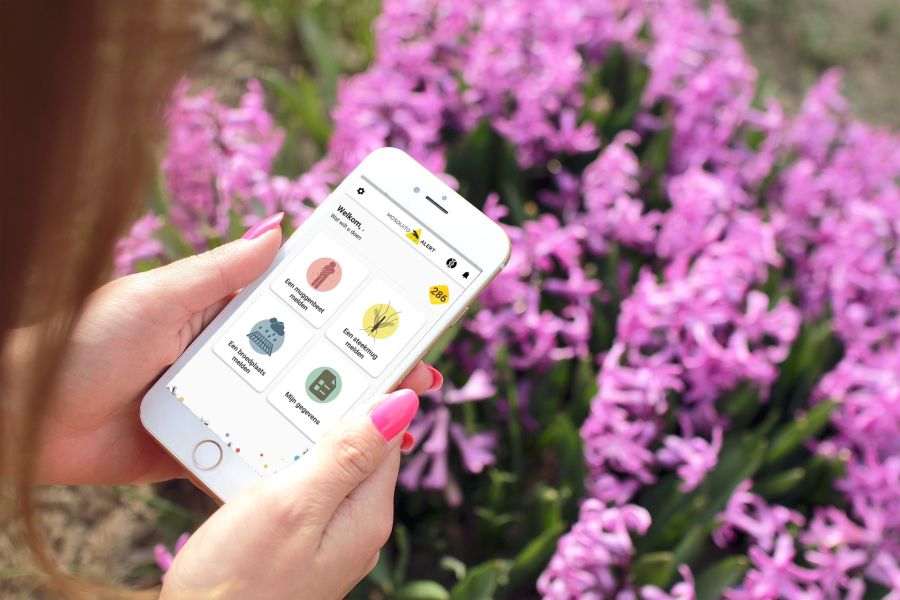Mosquito
Alert App
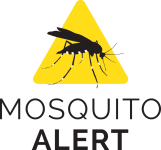
What is Mosquito Alert?
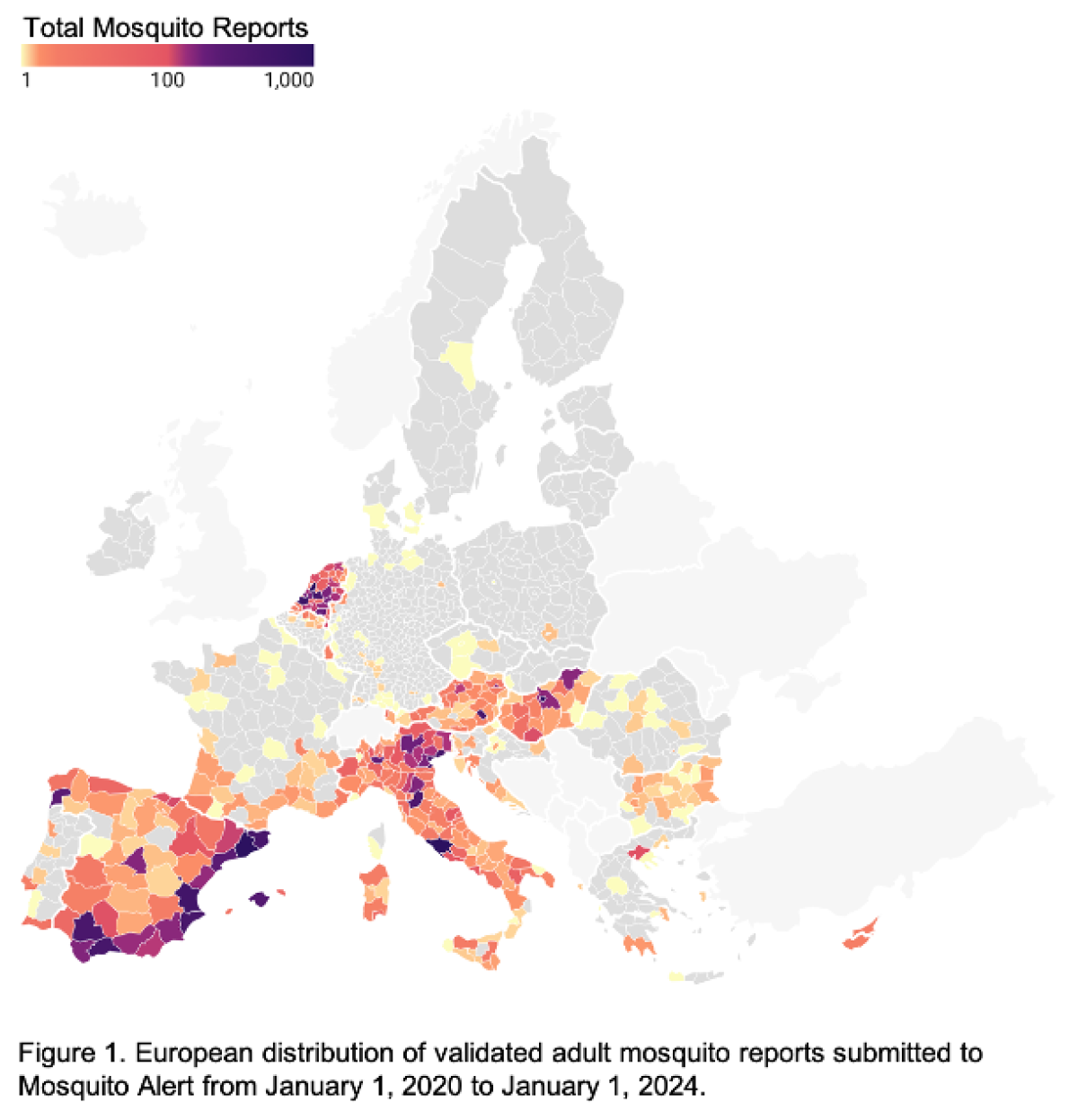
Mosquito Alert as a tool for surveillance
Mosquito Alert began as a citizen science initiative in 2014 with the primary goal of investigating the spread of the tiger mosquito (Aedes albopictus) in Spain. This initiative empowers citizens to contribute to the project by reporting adult mosquito sightings, identifying breeding sites, and documenting mosquito bites. All submissions undergo a rigorous validation process overseen by national experts. Notably, Mosquito Alert facilitated the discovery of a new invasive mosquito species in Spain through a citizen-reported observation (add reference for koreicus and also about A albopictus in Galacia).
Mosquito Alert is a non-profit cooperative citizen science project, coordinated by different public research centers. The goal is to study, monitor, and fight the spread of invasive mosquitoes capable of transmitting global diseases such as dengue, Zika, or West Nile fever. The tiger mosquito and the yellow fever mosquito are some of the invasive species that Mosquito Alert watches out for.
Surveillance is carried out with the Mosquito Alert app, which allows anyone to notify, by means of a photo, the possible discovery of one of the mosquitoes studied, as well as that of their breeding places in public spaces. Along with the photo the location of the observation and other necessary information to help in the identification of the species are collected. A human team of expert entomologists is in charge of validating the photos received and notifying the participant of the result. Finally, the result is published on the public map, where you can consult and download the observations recorded since 2014, as well as explore the probability models developed from the citizen observations.
The information obtained through the Mosquito Alert app complements the scientific work in the surveillance of invasive mosquitoes and can be used by public health managers to monitor and control these mosquitoes in neighborhoods and cities.
The Mosquito Alert app is also used in our One Health PACT research and is one of our citizen science projects.
Mosquito Alert Timeline since the start of One Health PACT
-
2020 – Start One Health PACT
-
2021 – Press release ‘Last van muggen? Sla ze plat en maak een foto!’ was sent out in The Netherlands.
-
2023 – Press release ‘Zie je een mug? Pak je telefoon en vlug!’ was sent out in The Netherlands.
-
2020 – Mosquito Alert formed and forms part of European Networks (AIM-COST (2020-2022) / INOVEC (2023-2025).
-
2023 – Mosquito Alert and digital citizen science is now a formal tool in the “Plan Nacional de Prevención, Vigilancia y Control de Enfermedades Transmitidas por Vectores” (April 2023), and part of the Comité Estatal de Coordinación y Seguimiento del Plan de Prevención, Vigilancia y Control de las enfermedades transmitidas por vectores.
-
Year – Mosquito Alert is also involved in international initiatives like the Global Mosquito Observation Dashboard (GMOD, www.mosquitodashboard.org).
-
2022 – In 2022 Mosquito Alert was a finalist at the European Innovation Council Horizon Prize on the topic of “Early Warning for Epidemics” with the FARSEER Initiative.
-
2023 – In 2023 Mosquito Alert has been awarded an Honorary Mention for the European Union Prize for Citizen Science for excellence in the advancement of knowledge through the empowerment of civil society in the development of the future (https://ars.electronica.art/citizenscience/en/mosquito-alert/).
-
2024 – In January 2024, it was announced that Mosquito Alert has been selected for the WSA (World Summit Awards, https://wsa-global.org/about/) shortlist. The WSA selects and promotes outstanding digital innovations, which will be decided in April 2024.
International recognition for Mosquito Alert at WSA Awards
The World Summit Awards (WSA) recognize digital solutions that contribute to achieving the United Nations Sustainable Development Goals. The citizen science project Mosquito Alert has been awarded as a digital solution with social impact in the category of “Smart Settlements and Urbanization”.
The citizen science platform Mosquito Alert has been distinguished with the international WSA 2023 in a category that highlights the importance of digital solutions that contribute to creating healthier, more sustainable, and inclusive urban environments.
The WSA awards are a global initiative established within the framework of the United Nations World Summit on the Information Society (WSIS), aimed at recognizing and promoting digital solutions that have a positive impact on society and contribute to achieving the United Nations Sustainable Development Goals.
Mosquito Alert is among the 40 digital initiatives awarded in 8 different categories, after competing with a total of 466 submissions from 88 countries.
Mosquito Alert receives an Honorary Mention in 2023
In 2023 the Mosquito Alert App – a citizen science projects which is also spread to citizens in the Netherlands by One Health PACT – received an Honorary Mention.
Community intelligence for mosquito-borne disease preparedness and response
Vector management is the main method for tackling many of the world’s most burdensome infectious diseases, such as malaria and dengue. Effective methods of targeting mosquitoes that transmit pathogens saves lives and protects the health of millions. Mosquito Alert brings citizen science and digital technologies to encourage cost-effective and sustainable vector management, fostering intersectoral communities, and adding operational tools that work locally while offering global solutions.
Data is collected by citizens using a mobile phone app and validated by an international network of entomologists. Results are shared using open science protocols. Collaborations are constantly sought to improve and transfer knowledge for a common benefit. This open innovation initiative has advanced the knowledge of mosquitoes as disease vectors by mapping population distributions, discovering species of concern in new regions, and constantly adjusting the fitness for use of our citizen science methodologies.
The start of the Mosquito Alert-project 2024
An inspiring day full of sharing knowledge
On February 6th, students from Avans College, PhD students from One Health PACT and several school representatives from schools such as Northgo College, Ubbo Emmius, and Eligant Lyceum came together at the Nieuw Instituut in Rotterdam for the teacher training of the Mosquito Alert-project.
The students from Avans will conduct small research projects for One Health PACT PhD students, contributing to the research on mosquito-borne viruses. In return, the PhD students will assist the students from Avans in conducting their research through masterclasses and feedback sessions. The central question for the project this year is: “Is your own environment a suitable breeding ground for mosquitoes?”
At the final event on the 14th of June, the students will present their findings using self-made posters based on their research!
Zie je een mug, pak je telefoon vlug!
Om overlast door muggen aan te pakken, worden burgers in Nederland uitgenodigd om deel te nemen aan Mosquito Alert, een van de citizen science projecten van One Health PACT. Met dit project kunnen burgers een actieve rol spelen in het opsporen van muggen en met die waardevolle informatie kan muggenoverlast in Nederland in kaart gebracht worden. Op de plekken met de meeste overlast kunnen er maatregelen genomen worden om muggenoverlast te verminderen.
Mosquito Alert is een gratis, interactieve mobiele applicatie (app) waarmee burgers via hun smartphone muggen en muggenbeten kunnen melden. Met deze gegevens worden kaarten gemaakt waarop te zien is waar wat voor soort muggen zich bevinden (zie (http://webserver.mosquitoalert.com/static/tigapublic/spain.html#/en/). Deze kaarten spelen een belangrijke rol in het bepalen van waar muggen zijn, en hoe groot de kans is dat je in contact komt met muggen. Op de plekken waar de meeste overlast van muggen wordt gemeld, kunnen maatregelen genomen worden om de overlast te verminderen. Door deel te nemen aan Mosquito Alert kunnen burgers een actieve rol spelen bij het vroegtijdig opsporen van muggen en dus indirect de muggenoverlast verminderen.
The Netherlands interactive map
Top municipalities with mosquito reports in the Netherlands
Time line of reports during 2021
Press release: Troubled by mosquitoes? Knock them down and take a picture!
Click here to read the press release in Dutch.
- Submit mosquito photos via the Mosquito Alert App and help prevent nuisance and the spread of any future mosquito-borne infectious diseases
- Anyone can download the app for free and submit photos and reports of mosquitoes, mosquito bites and mosquito breeding sites – You will receive points for each photo submitted!
Rotterdam, 12 August 2021 – Starting this summer, anyone in Europe can submit photos and reports of mosquitoes, mosquito bites and mosquito breeding sites via the Mosquito Alert app. The goal is to accurately map the current distribution of native mosquitoes with the help of citizens, and, thus, predict in which areas in the Netherlands and the rest of Europe exotic mosquitoes may become established in the future. This is important because certain mosquito species can transmit diseases. The more photos submitted, the better mosquito populations can be mapped and targeted preventative measures can be taken. The data collected with the app is used for One Health research of the One Health PACT (in the Netherlands) and VEO (Europe).
Persbericht: Last van muggen? Sla ze plat en maak een foto!
Click here to read the press release in English.
- Stuur via de Mosquito Alert App muggenfoto’s in en help zo mee om overlast en de verspreiding van eventuele toekomstige door muggen overdraagbare infectieziektes te voorkomen
- Iedereen kan de app gratis downloaden en foto’s van muggen, muggenbeten, en muggenbroedplaatsen insturen; voor elke ingezonden foto krijg je punten
Rotterdam, Nederland, 26 juli 2021 – Vanaf deze zomer kan iedereen in Europa via de Mosquito Alert app foto’s van muggen, muggenbeten en muggenbroedplaatsen insturen. Het doel is om met hulp van burgers de huidige verspreiding van inheemse muggen nauwkeurig in kaart te brengen en zo te voorspellen in welke gebieden in Nederland, en de rest van Europa, in de toekomst exotische muggen zich mogelijk kunnen gaan vestigen. Dit is belangrijk omdat bepaalde muggensoorten ziekten kunnen overdragen. Hoe meer foto’s, hoe beter muggenpopulaties in kaart kunnen worden gebracht, en gericht preventieve maatregelen kunnen worden genomen. De met de app verzamelde gegevens worden gebruikt voor het One Health onderzoek van One Health PACT (in Nederland) en VEO (Europa).
Mosquito Alert App in de media: onderzoekers vragen om foto’s van platgeslagen muggen
Een mug gesignaleerd in huis of een jeukende muggenbult op je lijf? Neem een foto en stuur ‘m in via de Mosquito Alert App. Onze One Health onderzoekers gebruiken de foto’s om erachter te komen waar broedplaatsen zijn van muggen. Doel: de verspreiding van (exotische) muggen beter in de gaten houden.
De onderzoekers brengen nu de gewone huismug in kaart. Maar ook in Nederland kan deze mug tropische ziekten overbrengen. Alhoewel de aantallen in Nederland nog klein zijn, liepen vorig jaar zeven mensen in de regio Utrecht en Arnhem voor het eerst het westnijlvirus op. En het risico op uitbraken van tropische infectieziektes – zoals dengue, chikungunya, en zika – wordt door klimaatverandering ook steeds groter.
Ook Nederland wordt hierdoor steeds aantrekkelijker voor exotische muggensoorten. “Die maken een opmars vanaf de Middellandse Zee, omdat het steeds warmer wordt,” aldus Maarten Hoek, programmamanager van One Health Pact. Volgens hem is het niet meer de vraag of, maar wanneer dat gaat gebeuren.
